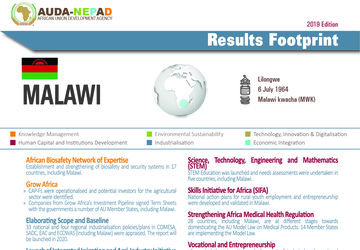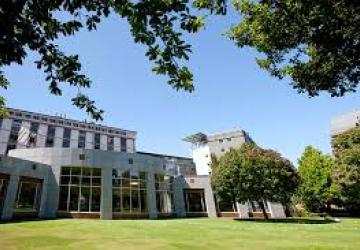 Malawi
Malawi
Official Name: Republic of Malawi
Captial: Lilongwe
Independence Day: 6 July 1964
Currency: Malawi kwacha (MWK)
Key Result
More than 1,500 youth benefited from youth employment opportunities in the agriculture sector in Benin, Cameroon, Malawi and Niger.
Malawi was among 10 countries where a skills audit and youth employment creation were conducted. This exercise addressed the Rural Futures Programme’s objective of reducing rural poverty and employment challenges.
Malawi is also among the first four countries that have been supported to strengthen the health sector’s response to Tuberculosis and occupational lung diseases.
The North-South Corridor Road/Rail Project entails the construction of a multi-modal trans-continental interconnector.
The Lusaka-Lilongwe ICT Terrestrial Fibre Optic project aims to reduce landed prices of internet capacity and as well provide additional capacity.
Malawi forms part of the first ten countries that will implement the Initiative for Food and Nutrition Security in Africa a new partnership for nutrition accountability.
Malawi received USD39.6 million from the Global Agriculture and Food Security Programme (GAFSP) for the promotion of irrigated rice and horticulture production as well as crop diversification and value chain development for selected commodities.
Related
Projects

A critical AU Model Law aimed at harmonizing medical products regulatory systems in Africa was endorsed by African Heads of State and Government at the January 2016 AU Summit in Addis Ababa, Ethiopia. The AU Model Law will contribute towards accelerate the regulation of safe, quality and affordable medical products and technologies in Malawi.

CAADP Compact: Malawi signed the CAADP Compact on 19April 2010.
Capacity Building: Demand-driven, modular, short-term pilot measures for agricultural training (along selected value chains) were offered by public and private agricultural training institutions for 200 young ‘agripreneurs’ of which 60 were women.
NEPAD also supported Malawi in conducting an Independent Technical Review (ITR) of the NAIP from 10 – 16 September 2010. Malawi’s investment plan known as the Agriculture Sector Wide Approach (ASWAp) focuses on three areas: food security and risk management, commercial agriculture, agro-processing and market development, and sustainable agricultural land and water management. Malawi also received support in conducting Agricultural Joint Sector Reviews (JSRs) practices using the Monitoring African Food and Agricultural Policies (MAFAP) tools. A public expenditure study on the country’s agricultural sector was carried out in 2013.
Malawi is one of the countries receiving support in establishing its Strategic Analysis Knowledge Support System (SAKSS) to inform and guide the CAADP implementation process.
Business: Its first CAADP Business Meeting was held from 28 - 29 September 2011.
Funding: Malawi received funding from the Global Agriculture and Food Security Programme (GAFSP), a multilateral mechanism by the G20 to address funding of country and regional agriculture, amounting to amounting to USD 39.6 million.
Results:
- The fertilizer subsidy programme started in 2004/2005 has resulted in increased yields in the first six years. For the first time in many years Malawi registered surplus harvests after the introduction of the Fertiliser Subsidy Input Programme (FISP), with the average being 1.2 million metric tons.
- Increased productivity and production has resulted in food self-sufficiency in the first six years of FISP
- FISP has contributed to increased farm incomes and therefore a reduction in poverty in the first six years
- Engagement of the private sector through public-private partnerships has proven to be essential in the agricultural sector.
- Other best practices in Malawi include the uptake of nutrition sensitive agriculture production, intensified use of certified seeds and the increased use of drip irrigation.

1. On-going technical support to strengthen the national-level knowledge management platform.
2. Undertook the Measuring the Cost of Hunger in Africa: Malawi was among the second phase countires (Burkina Faso, Ghana, Malawi, Rwanda) to implement the COHA study. The overarching objective of the multi-country study led by the AUC, NEPAD, WFP and UNECA, is to catalyse coordinated action and inform the design of nutrition-oriented policy frameworks and programmes, with greater investments to eradicate child undernutrition on the continent.
10 findings from the “Measuring the Cost of hunger” study in the first and second phase countries:
- Africa's share in the world's undernourished population has increased from 18 to 28 percent.
- Only one in five children suffereing from undernutrition occur before the child reaches the age of one year.
- Most health costs associated with undernutrition occur before the child reaches the age of one year.
- Between 7 to 18 percent of repetitions in schoold are associated with stunting.
- Stunted children achieve 0.2 to 1,5 years less in school edication.
- 8 to 33 percent of all child mortality is associated with undernutrition.
- Child mortality associated with undernutrition has reduced national workforces by 1 to 13.7 percent.
- 40 to 67 percent of current working-age population suffered from stunting as children.
- The annual costs associated with child underbutrition are estimated at 1.9 to 16.5 percent of the equivalent of Gross Domestic Product (GDP).
- Improving the nutritional status of children is a priority that needs urgent policy attention to accelerate socio-economic progress and development in Africa.

Project : TAH programme
Description : This is phase I of the continental connectivity programme that focuses on completion and standardisation of the TAH missing links by 2030
Project : Single African Sky phase 1 (design and initial implementation)
Description : Single African Sky is a continental programme that will create a high-level, satellite-based air navigation system for the African continent
Project : Yamoussoukro Decision implementation
Description : Accelerate Yamoussoukro Decision implementation by identifying countries that are ready to fully implement it, and discussing and agreeing with both their governments and airlines to launch the voluntary club on a full membership basis
Project : ICT Enabling Environment
Description : This programme would improve the environment for the private sectors to invest in high-speed broadband infrastructure
Project : ICT Terrestrial for Connectivity
Description : This programme has two main components : secure each country connection by at least two broadband infrastructure and ensure the access to submarine cable to all landlocked countries
Project : Internet Exchange Point (IXP) programme
Description : The aim of this programme is to provide Africa with adequate internet node exchange to maximise internal traffic
Project : North–South Power Transmission Corridor
Sector : Energy
Description : 8,000 km line from Egypt through Sudan, South Sudan, Ethiopia, Kenya, Malawi, Mozambique, Zambia, Zimbabwe to South Africa
Project : North-South Multimodal Corridor
Description : This programme is designed to modernize the highest priority multimodal ARTIN corridor
in Southern Africa on modern standards and facilitate travel of people and goods across the borders between South Africa, Botswana, Zimbabwe, Zambia, Malawi and DRC
Project : Beira-Nacala Multimodal Corridors
Description : Rehabilitation/reconstruction of railway and road links, including one-stop border posts along the corridors. Improvement of capacity at the ports, including capital dredging at Beira Port. Natural resources development, including Moatize Coal Field in the Zambezi Valley will use the ports as main export gateways
Project : Lusaka-Lilongwe ICT Terrestrial Fibre Optic (DFS)
Description : Provide redundancy and reduce landed prices of internet capacity. Additional capacity
(Secondary).

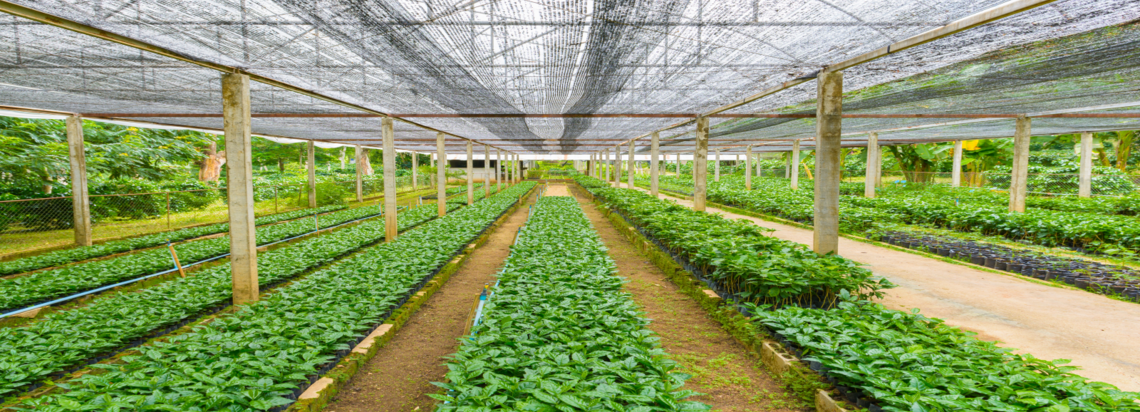
One of the countries receiving support to produce blue prints on rural transformation;
Decent Employment for Rural Areas - Project Inception


Technical capacities were strengthened to establish and manage functional biosafety systems for the safe use of modern agricultural biotechnology. Other technical support included national biosafety training workshops, biosafety short courses at African institutions and partner institutions outside Africa, notably at Michigan State University in the USA, biosafety internships, technical consultation support, and biosafety information resources.
Biosafety short courses form an integral component of ABNE activities in Africa. In 2014, ABNE presented a biosafety short course at Makerere University in Uganda and agricultural biotechnology short courses at Michigan State University in the USA. A total of 24 regulators drawn from Ethiopia, Kenya, Malawi, Mozambique, Tanzania, Uganda and Zimbabwe gained broad insights into the basics of biosafety science, policy and regulation, GM crop risk assessment and management, and biosafety communication and awareness creation.
Results:
•2 Hostels for Female Student built at to Vocational Training Institute.
•359 291 women capacitated through CSO and grassroots organizations including 92 Local authorities and state government in the six geopolitical zone of Nigeria. Namibia 13 Council has implemented Action Plan for Gender Aware Service Delivery and 384 Parliamentarian in the region of Tigray, Amhara and Somalia facilitated research support from 250 graduated students for Gender Aware Parliamentarian Oversight.
•74 435 women empowered economic and financial terms: Income generation skills; Deployment of technical assistance to boost agriculture production for both consumption and commercial purposes; Accessing agricultural extension services; Promotion of gender inclusiveness in decision making; Creation of enabling environment to access land; Land tenure and legalization of land title for women; Youth job creation; SME management; Informal and Regional Trade development.
•25 438 women support through institutional based capacity building.
Results:
•2 Hostels for Female Student built at to Vocational Training Institute.
•359 291 women capacitated through CSO and grassroots organizations including 92 Local authorities and state government in the six geopolitical zone of Nigeria. Namibia 13 Council has implemented Action Plan for Gender Aware Service Delivery and 384 Parliamentarian in the region of Tigray, Amhara and Somalia facilitated research support from 250 graduated students for Gender Aware Parliamentarian Oversight.
•74 435 women empowered economic and financial terms: Income generation skills; Deployment of technical assistance to boost agriculture production for both consumption and commercial purposes; Accessing agricultural extension services; Promotion of gender inclusiveness in decision making; Creation of enabling environment to access land; Land tenure and legalization of land title for women; Youth job creation; SME management; Informal and Regional Trade development.
•25 438 women support through institutional based capacity building.
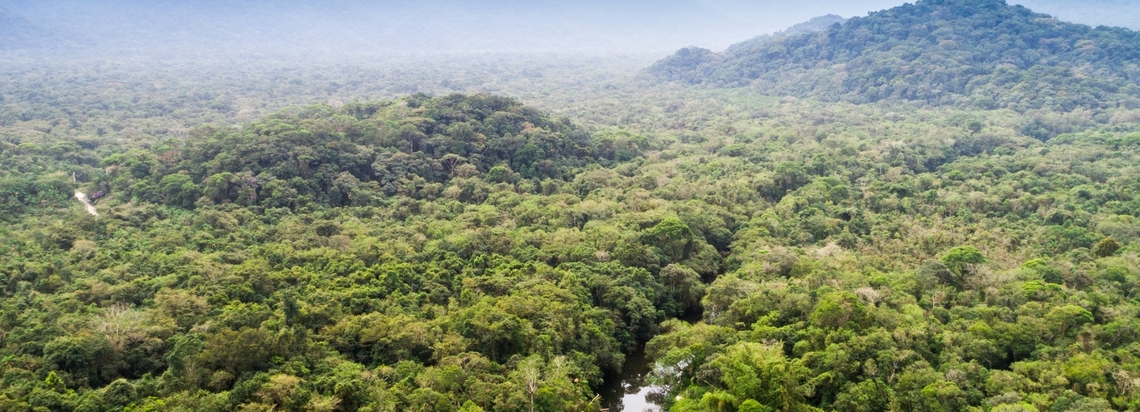
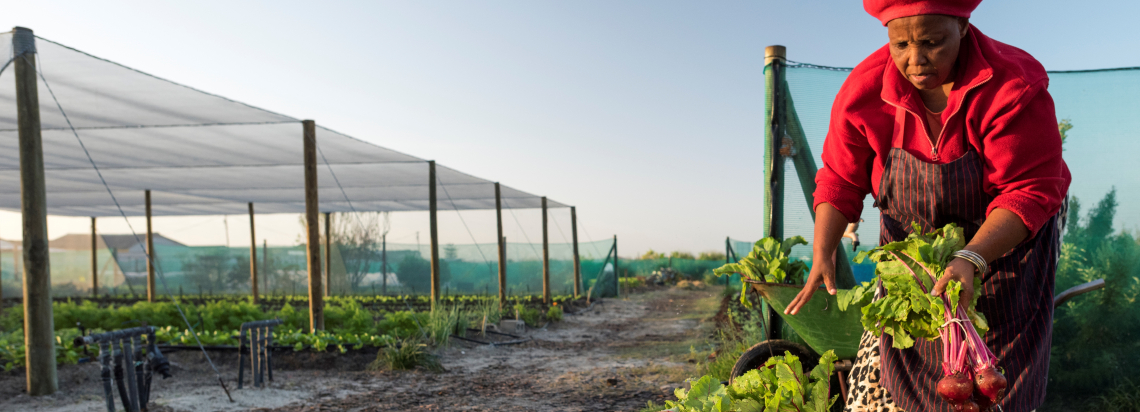
Resulting from an innovative process of consultations involving women smallholder farmers on the ground and various stakeholders (a participatory and multi stakeholder approach), desk reviews and country case studies, the Gender Climate Change and Agriculture Support Programme intends to benefit 50,000 women farmers in Malawi. To achieve implementation at the ground level, GCCASP will provide implementation support in the areas of closing policy and institutional gaps, building the capacities of women smallholder farmers, the creation and strengthening of women platforms and investing in up-scaling of successful and innovative practices.

Advocacy and Strengthening of Negotiation Capacities on Post-2015 Development Agenda through the Common African Position (CAP)
Global Partnership for Effective Development Cooperation (GPEDC)
The Global Partnership is an inclusive political forum bringing together governments, bilateral and multilateral organisations, civil society and representatives from parliaments and the private sector, committed to strengthening the effectiveness of development co-operation to produce maximum impact for development. Through its multi-stakeholder platform, the Global Partnership provides support, guidance and shares knowledge to boost development impact with a strong country focus, and to ensure a degree of coherence and collaboration among all development stakeholders on co-operation flows and policies. It offers a global mechanism to ensure co-operation is based on Busan principles of ownership, results, inclusiveness; and transparency and accountability to deliver tangible results on the new SDGs. NEPAD Agency is the Africa’s Secretariat for the Global Partnership.

Project : Transmission-- North South Transmission Line Project
Countries/Region : Egypt, Sudan, South Sudan, Ethiopia, Kenya, Uganda, Tanzania, Malawi,Mozambique, Zambia, Zimbabwe, South Africa, | East and Southern Africa
Project Location : Regional Interconnector-East and Southern Africa
Sector/Subsector : Energy/Transmission
Project Description : Construction of an 8,000 km, 3,000 - 17,000 MW capacity transmission line system from Egypt through Sudan, South Sudan, Ethiopia, Kenya, Uganda, Tanzania, Malawi, Mozambique, Zambia, and Zimbabwe to South Africa, connecting the Eastern Africa Power Pool (EAPP) and the SAPP.

Project : North-South Corridor Road/Rail Project
Description : Construction of a multi-modal trans-continental interconnector
Description : The use of political gravitas and goodwill to unblock and facilitate political bottlenecks affecting the implementation of ICT broadband and optic fibre projects on the continent

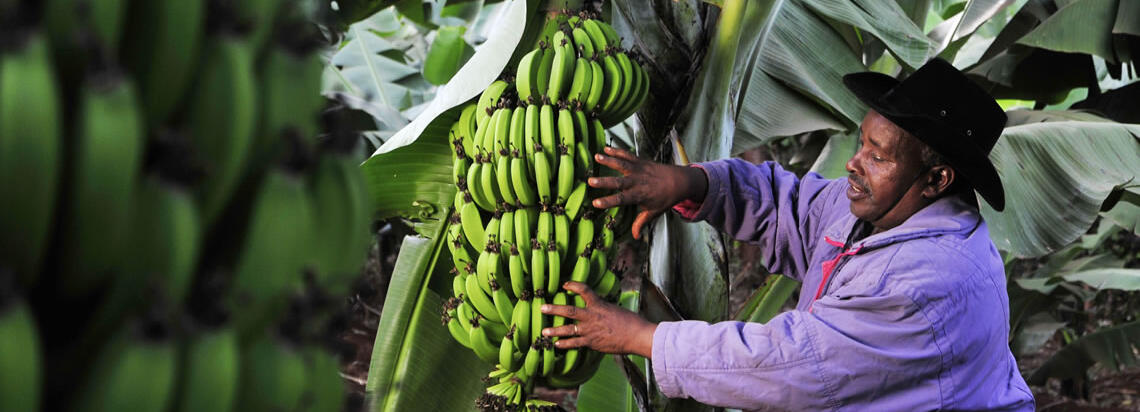
New Alliance for Food security and Nutrition and Grow Africa Partnerships: 27 LOIs from 13 domestic companies and 14
international.
• $144,750,000 of planned investment.
• $7,622,979 reported as invested in 2014, making
a cumulative total of $39,522,979 to date.
• 863,738 smallholders reached in 2014.
• 1,291 jobs created in 2014.
• $256 million donor disbursements in 2014 (421%
of expected).

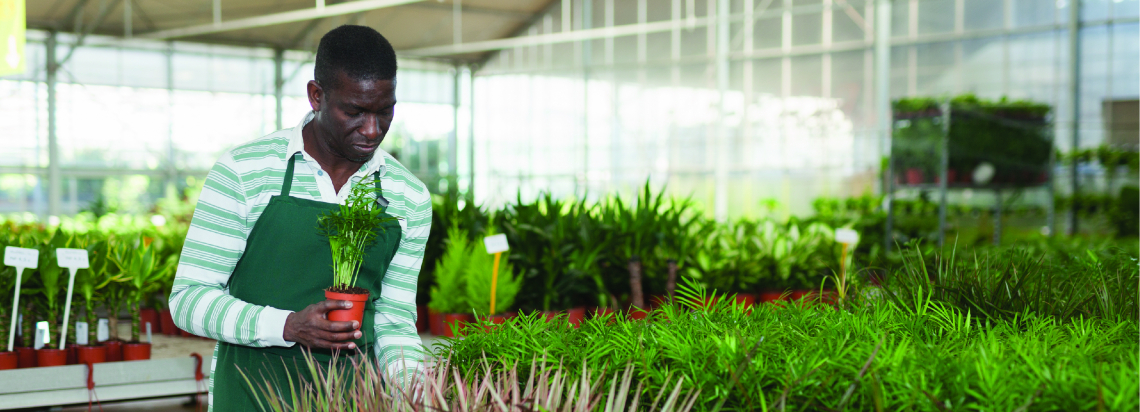
In Malawi, ATVET was established in August 2014. A mapping exercise was initially conducted to established the status of ATVET and identify relevant actors and institutions who can support the implementation of this project. The actors and stakeholders identified included Technical, Entrepreneurial and Vocational Education and Training Authority(TEVETA), National Council for Higher Education(NCHE), Public ATVET institutions (Malawi College of Fisheries, Community Colleges {Naminjiwa, Mponela, Mbandira Ngara} and Residential Training Center-Lisasadzi ,Thuchira ), Private ATVET institutions namely DAPP Mikolongwe Vocational Training School, Stephanos Vocational Training Centre, St John’s of God Institute of Vocational Training, Private Sector and National Employer and Employee bodies such as ECAM,MCCCI.
Subsequently, two more studies were conducted; one was to identify skills needs along value chains, and the other was an analysis of the organisational capacity of ATVET institutions.
Two value chains in horticulture (mango and pineapple) and one in aquaculture have been selected in Malawi. The project will support the development of specific curricula and occupational standards for these value chains. An orientation on Competence-Based Education and Training (CBET) has been completed, whose aim was to prepare participating institutions for effective implementation.
The process of curriculum development is currently in progress, with national and international consultants involved in the project. There are plans to integrate ATVET into the Malawi Agricultural Sector Wide Approach (Malawi’s National Agricultural Investment Plan) and Qualification Frameworks to ensure that ATVET is implemented in a systematic approach.

At the beginning of 2014, 37 of the 42 opted-in African countries have completed a rapid assessment / gap analysis. The next step for countries is to develop a SE4LL Action Agenda and Investment Prospectus(es). To support this process, the SE4ALL Africa Hub partners have led the development of Africa Guidelines for SE4ALL national Action Agendas. The Africa Guidelines lay out principles and process for developing Action Agendas and put forward a balanced approach of centralized and decentralized solutions to achieve universal access to energy services.
Progress in Malawi:
Starting SE4All Action Agenda and SE4All Investment Prospectus"
you agree to the AUDA-NEPAD Privacy Policy.




